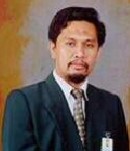

Plenary Lecture
Comparison of 2k-Factorial and Taguchi Method for Optimization Approach in 32nm NMOS Device

Professor Azami Zaharim
Head of Project Group of Renewable Energy Resources Analysis,
Policy & Energy Management, Renewable Energy Niche and
Head Centre for Engineering Education Research
Faculty of Engineering and Built Environment
Universiti Kebangsaan Malaysia
MALAYSIA
E-mail: azami.zaharim@gmail.com
Abstract: As silicon is now hit atomic resolution and reaching its physical and electrical limitation, producing a proper working transistor is tended to be harder and complicated. In this research, the effect of the process parameters variation on threshold voltage (VTH) was investigated. The fabrication of the transistor device was performed using TCAD simulator, consisting of ATHENA and ATLAS modules. These two modules were combined with Taguchi method to optimize the process parameters. Initially, the comparison between two different statistical methods which is 2k-factorial designs, and Taguchi Method was being conducted. In this comparison, the effects of the process parameters variation on VTH were studied. The most dominant or significant factors for S/N Ratio are halo implant energy, S/D implant dose and S/D implant energy. Meanwhile, the S/N Ratio values of VTH after the optimization approaches for array L8 is 23.8 dB. In L8 experiments, VTH value for NMOS device after optimizations approaches is +0.247V. The results obtained are closer to ITRS 2011 prediction. As conclusions, Taguchi Method was observed to be the most suitable method to be implemented in statistical modeling of 32nm NMOS device.
Brief Biography of the Speaker: Azami Zaharim worked first 13 years as a lecturer in the Universiti Teknologi MARA (University of MARA Technology - UiTM) before joining the Universiti Kebangsaan Malaysia (National University of Malaysia - UKM) in the year 2003. He obtained his BSc(Statistics and Computing) with Honours from North London University, UK in 1988 and PhD (Statistics) in 1996 from University of Newcastle Upon Tyne, UK. He specialize in statistics, public opinion, engineering education and renewable energy resources. In the year 2007, he headed the Engineering Mathematics Research Group. At the same time, he is currently active involve in outcome based education (OBE) approach at the national level and the chairman of the Engineering Education Research Group since 2005. He is also involved actively in the research for the future of engineering education in Malaysia 2006 under the Ministry of Higher Education of Malaysia. He is currently Head of Project Group of Renewable Energy Resources Analysis, Policy & Energy Management, Renewable Energy Nicheand also Head of Centre for Engineering Education Research.He has until now published over 80 research papers in Journals and conferences, conducted more than 15 public opinion consultancies and delivered 4 keynotes/invited speeches at national and international meetings.